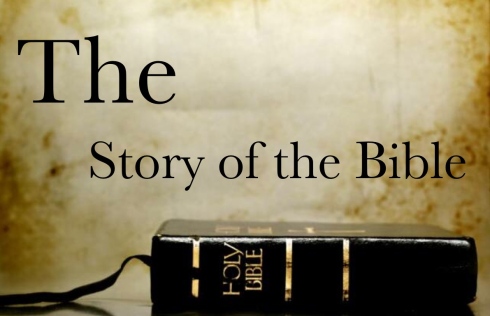
The Exodus Event serves as a model of holistic redemption. The event itself is a type, pointing forward to the redemption Jesus brings to all those who believe in Him as their Lord and Savior. Not only is it a type, but it also tells us the scope of God’s mission.
What is the Scope of God’s Mission?
When we look at the Exodus event, we see a four-fold scope in God’s mission:
(1) Political
In Exodus 1:1-22, we learn Israel were refugees in the land of the Egyptians because of the great famine. They originally were protected and lived by themselves in the land of Goshen, but after Joseph died they faced political oppression by the Egyptian’s. They were afflicted with heavy burdens because they were too many of them and they were too mighty for the Egyptians to handle. For fear that the Israelites might overthrow them, or band with another nation in war against them, they enslaved them. They made them work with brick and mortar, building store cities for them, as well as they were forced to serve in the fields, tending to the Egyptian’s crops.
(2) Economic
In Exodus 1:11-14, we also see that they were not allowed to care for their own well-being. Through forced labor, they had to care for the Egyptians by building them store cities and working their fields. This would have left no time for them to care for their own flocks and to work their own land. The prosperity they once knew was gone because of economic oppression.
(3) Social
In Exodus 1:8-22, we learn Israel was oppressed by Egypt because they were Hebrews. More than forced labor was dealt out to them, Pharaoh ordered that their midwives kill all male sons that were born to the Hebrew women. So then, the Hebrews were not only treated as slaves, but a state-wide genocide was ordered against their male sons simple because of who they were.
(4) Spiritual
Not only was the oppression Israel faced political, economic, and social, but it was also spiritual. They were kept by Pharaoh from journeying into the wilderness to worship their God (Ex. 4:22-23; 5:1-9).
God Heard their Cry
God heard the groanings of the Egyptians and He remembered His covenant with Abraham, Isaac, and Jacob (Ex. 2:23-25). He then raised up Moses and paired him with Aaron to go and confront Pharaoh (Ex. 3-4). Moses and Aaron’s initial request was denied by Pharaoh, so God sent plagues on the land of Egypt with the final one resulting in the Israelites release in the Exodus event (Ex. 5-12).
Through the Exodus Event, God delivered Israel from political, economic, social, and spiritual bondage. They were given their own land, God made them to be His people, and He defeated their enemy by drowning them in the Red Sea (Ex. 6:6-8; 14:26-31). While God did deliver Israel from this four-fold bondage and gave them these blessings, He did more than that. He delivered them from sin. Not so much their own sin, but the sin of Pharaoh, who was their oppressor [1].
So we see the scope of God’s missions involves deliverance from political, economic, social, and spiritual bondage, as well as deliverance from sin.
Connecting it to Jesus
The Exodus event becomes a motif, a recurring event that has significance in a story. It is used over and over throughout the prophets as they look forward to a final exodus (Eze. 20:32-38; 37:15-28; Jer. 16:14-15; Isa. 35:8-10) [2]. One that is led by Jesus, known as the New Exodus.
The New Exodus occurred during Jesus’ death on the cross, where He defeated Satan and his kingdom releasing those who believe in Him as their Lord and Savior from the bondage and slavery that oppresses human life and well-being and opposes God.
All those who believe in Jesus, form a new community, which is freed from the bondage of sin and the rule of Satan over their lives. One day, when Jesus returns, this new community will also be ultimately freed from all political, economic, social, and spiritual oppression, completing the New Exodus event. At this time, God’s glory will dominate (Isa. 40:5, 9-11; 60:1-22), Jesus will reign in justice and righteousness (Isa. 11:1-9), and everything will be restored back to its originally intended way of life as sin, which is the reason for all forms of oppression, is ultimately removed from the world (Isa. 65:17-25).
Conclusion
As we look at the Exodus Event, we see that it serves as a type pointing to the New Exodus that is led by Jesus Christ. It also serves to tell us the scope of God’s mission, which includes release from all political, economic, social, and spiritual bondage, as well as a release from the bondage of sin and the rule of Satan over our lives, so that we can worship God.
Questions for Reflection:
- If God’s mission involves the ultimate removal of all political, economic, social, and spiritual bondage, should we, as God’s people, who have taken up God’s mission, also work for these things?
- If we are to take up God’s mission, how might you propose we work for political, economic, social, and spiritual freedom?
- Have you witnessed others helped, or been helped yourself, by Christians to be released from political, economic, social, or spiritual bondage? If so, how did they accomplish this task?
Resources
- [1] Christopher Wright, The Mission of God, 278.
- [2] Zephaniah, Zechariah, as well as Matthew, Mark, and Luke recognize the New Exodus as a motif and use it in their writings.
- Post adapted from Christopher Wright, The Mission of God’s People, 100-107.
Image






